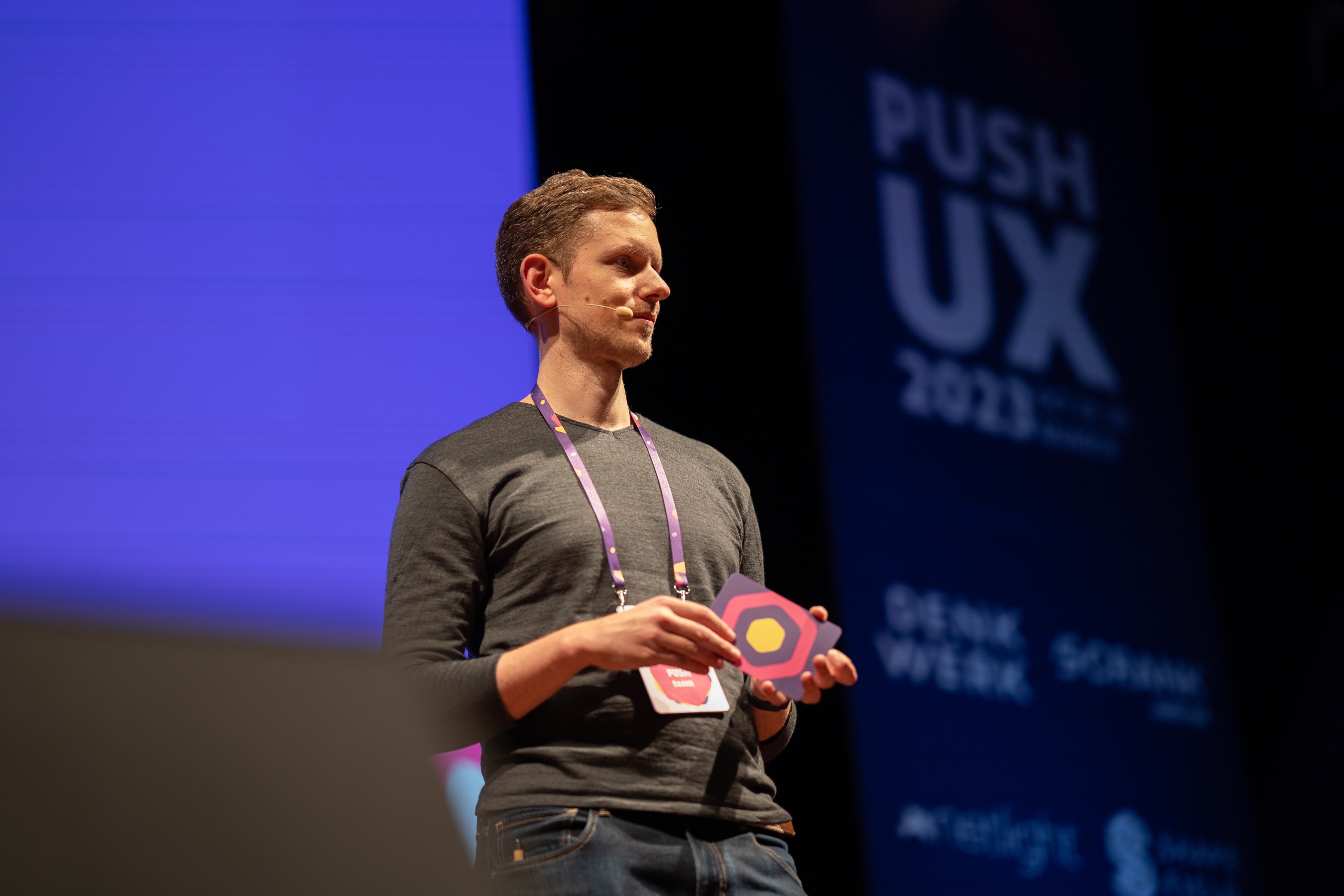Jobtitle: Product & UX Strategy Coach
Social URLs:
Was it always your plan to study Information Design at the UAS?
No, after graduating from secondary school and doing my civilian service, I first wanted to do something in the field of typography and graphics. I also liked web design, I designed websites for local companies when I was 12 years old and got paid for it. That set the course before I went to university. I then looked around for a suitable degree programme, and Information Design appealed to me right away.
Where did you do your internship?
I asked Konrad Baumann if he had an idea for my summer internship. He had good contacts with the department at BMW that deals with operating instructions. Moderately exciting, I thought, but I thought it would be good to see BMW from the inside. When I was there, I used the internal phone book to make coffee appointments with people from other departments. Among others, with someone from “Advanced Design”, where I eventually did my compulsory internship and wrote my Bachelor’s thesis.
What happened after the Bachelor’s thesis?
Then the question arose as to whether I would stay at BMW. But the problem was the economic crisis at the time. No one could promise me a job. Fortunately, I then met my colleague Thomas again in the BMW canteen. I knew Thomas from his semester abroad in Graz, and he had the idea that we could start our own business. We went through with it without thinking too much about it.
And with which company did you then start your own business?
We founded a small design studio called “envis precisely”. Taking a pun like that which no German-speaking person can pronounce as a name later turned out to be a huge mistake. Fortunately, we were able to win BMW as our first client. At that time, we designed everything from in-car interfaces to mobile apps. It was a very exciting time. We wrote our business plan in the lobby of a youth hostel near the main station.
A little later, Markus, another UAS graduate, joined us as the third founder. Slowly but surely, the studio grew. During this time we also developed the PUSH UX conference, which still exists today. We thought it would be cool to have our own conference as a marketing platform. But as time went on, life as an agency head became too stupid for us. At that time, 70% of my time was spent on client acquisition and other administrative tasks instead of on the design itself. In 2013, we finally closed the studio.
And what did you do after that?
I was very selective with my applications. In the end, only Google and Mozilla remained as options. Because I only wanted to apply to these two companies, I put a lot of effort into each application. For Mozilla, I built a small website – readyformozilla.com – which is still online. It worked very well. A few weeks later, I started working there remotely from Munich.
How can you imagine it – working for Mozilla?
I found the time at Mozilla extremely exciting – working across different time zones and getting into the world of Silicon Valley was great. I’ve been involved in several major redesigns of the Firefox browser, as well as overhauling the search function. The browser is very complex, and there was a lot of learning by doing. It was nice to have the freedom to work from anywhere. I travelled a lot and spent a long time in Vancouver and San Francisco, for example.
How long did you stay at Mozilla?
In my five years at Mozilla, I gradually moved more and more towards management. First I managed a small team, then a larger one, and in the end I was Head of Design for all Firefox products. After a while, however, I got a feeling of saturation, and at the same time, there were changes in the company. I then came to Freeletics, a fitness app start-up in Munich, through contacts. There was a vacancy for the Director of UX. Over the next two years, I managed and expanded the UX team at Freeletics. However, as of August 2021, I quit and started my own business instead. I want to give myself the time to work on different personal projects and get to know different industries better.
That’s very brave, especially with your CV!
Yes, I’m a bit strange in that respect, too. Whenever I specialise too much, I get the feeling that I’m missing something. In my studies, some colleagues complained that everything was so broad and didn’t go into depth. But I have always found that particularly valuable. On the one hand, because I had the opportunity to get to know many different things, and on the other hand, because you saw that everything goes back to the same principles. You always need an aesthetic sense, technical understanding and you have to know how to get along with people or design something for people, whether in interface design, exhibition design or graphic design.
What advice would you give to people who are now finishing their studies?
What always helps is curiosity and trying to understand the big picture. The principles of user-centredness can be transferred to many areas of working life – for example, also to application processes.








